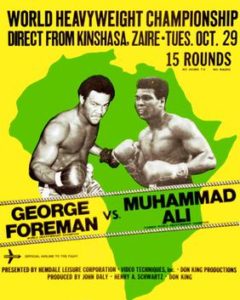The announcement that the Inspector General of Intelligence and Security (IGIS), Cheryl Gwyn, has convened an external Reference Group to discuss issues of intelligence agency oversight (specifically, that of the NZSIS and GCSB, which are the agencies under her purview) has been met with applause and controversy. The applause stems from the fact the Group is a continuation of her efforts to strengthen the oversight mechanisms governing New Zealand’s two most important intelligence collection and analysis agencies. The controversy is due to some of the persons who have accepted invitations to participate in the Group.
The Group is an unpaid, non-partisan collection of people with interest, expertise and/or background in matters broadly related to intelligence and security and their oversight. None are government employees, something that gives them freedom to speak frankly under the Chatham House rules established by the IGIS. The Group is a supplement to and not a rival of or substitute for the IGIS Advisory Panel, made up of two people with security clearances that have access to classified material and who can offer specific assistance on matters of operational concern. However, the Advisory Panel has had no members since October 2016.
The idea behind the Reference Group, which is modelled on a Dutch intelligence oversight counterpart, is to think laterally or “outside of the box†on matters relevant to intelligence oversight. Bringing together people from different backgrounds and perspectives allows Group discussions to gravitate towards areas of common concern, thereby eliminating personal agendas or extreme positions. And because the Group is made up of outsiders, it does not run the risk of becoming slave to the groupthink of agency insiders.
In contrast to the Advisory Panel, the Reference Group does not handle classified material nor discuss operational matters. Access to classified material or operational details is obviated by the fact that the Group’s focus is on the broad themes of accountability, transparency, organizational compliance and the balance between civil liberties (particularly the right to privacy) and the defense of national security as conducted by the lead intelligence agencies. These are matters of legality and propriety rather than operational conduct. And while similarly important, legality and propriety are not synonymous. Often what is legal is not proper and vice versa, and this is acutely the case when it comes to intelligence collection, analysis and usage. Since the IGIS does not oversea the NZDF and smaller intelligence “shops†such as those of the DPMC, Police, Immigration and Customs, the Group will only discuss issues relevant to oversight  of the NZSIS and GCSB.
Who are the members of the Group and why the controversy? The plurality of members are four public interest lawyers, three of them academicians and one an advocate for refugees. Two members are journalists. One is the Issue Manager for Internet NZ, one is the head of the NZ Council for Civil Liberties, one is a former Russian diplomat now serving as the Director of the Massey University Centre for Defense and Strategic Studies (CDSS), one is an economist who chairs Transparency International New Zealand and one is a private sector geopolitical and strategic analysis consultant.
Concern has been voiced about the presence of both journalists as well as the refugee advocate and the loyalties of the former Russian diplomat (although he has held positions at a US security institution as well as the NZDF-funded CDSS). The thrust of the contrary views about these and some of the other participants is that they are untrustworthy due to their personal backgrounds, professional affiliations and/or ideological orientations. An additional reason given for opposing some of the membership is that they have been strong critics of the SIS and GCSB and therefore should be disqualified a priori.
Others believe that the Group is just a whitewashing, window-dressing or co-optation device designed to neuter previous critics by bringing them “into the tent†and subjecting them to “bureaucratic capture†(whereby the logic of the agencies being overseen eventually becomes the logic accepted by the overseers or Reference Group interlocutors).
The best way to allay these concerns is to consider the IGIS Reference Group is as an external focus group akin to a Town Hall meeting convened by policy-makers. Communities are made of people of many persuasions and many viewpoints, and the best way to canvass their opinions on a broad range of subjects is to bring them together in a common forum where they can debate freely the merits of any particular issue. Â In the case of the Reference Group the issue of intelligence agency oversight and, more specifically, matters of institutional and individual accountability (both horizontal and vertical, that is, vis a vis other government agencies such as the judiciary and parliament, on the one hand, and vis a vis the government and public on the other); transparency within the limits imposed by national security concerns; and the juggling of what is legal and what is proper, are all set against the backdrop of respect for civil liberties inherent in a liberal democracy. These are complex subjects not taken lightly by those involved, all of whom have track records of involvement in the field and who, given the terms of reference and charter of the Group, are acting out of a sense of civic duty rather than for pecuniary or personal gain.
The IGIS does not need political or agency authorisation to construct such a Group, which has no statutory authority or bureaucratic presence. As a vehicle for interest intermediation on the subject of intelligence oversight, it serves as a sounding board not for the IGIS but for the people on it. In that light, the IGIS has called the Group’s discussion a “one-way street†where participants air their informed opinions about agenda items agreed to in advance and in which the IGIS serves as a discussion moderator and takes from it what she finds useful. Expected to meet two or three times a year over tea and coffee, the Group is not likely to tax the Treasury purse and could well deliver value for dollar in any event.
Critics of this exercise and other forms of interest intermediation or external consultation betray their closet authoritarianism because such concertative vehicles are mainstays of policy-making in advanced liberal democracies. Be it the tripartite wage negotiation structures bringing representatives of the State, labour and capital together (even at the regional or local level), to consultative boards and other social partnership vehicles that connect stakeholders and decision-makers in distinct policy areas, the use of interest intermediation is an integral feature of modern democratic regimes (for an example of the breadth of issues addressed by intermediation vehicles, see Kate Nicholls, Mediating Policy: Greece, Ireland and Portugal before the Eurozone Crisis. London: Routledge, 2015.). To argue against them because of who is represented or because they are seen as inefficient talkfests that are a waste of taxpayer money is just a cloak for a desire to silence broad public input and dissenting views in the formulation of public policy. That may have been the case under the previous government but no longer is the case now.
One of the thorniest problems in a democracy is the question of what system of checks and balances keeps the intelligence community proper as well as legal. As the most intrusive and sensitive of State activities, intelligence collection, analysis and usage must be free from reproach on a number of grounds—conflicts of interest, partisan bias, foreign control, illicit activity or criminal behaviour, etc.—and must be accountable and responsive to the public will. The broadening of consultation intermediators between the NZ intelligence community and the public is therefore a step in the right direction, and for that reason the Reference Group is a welcome contribution to the oversight authority vested in the IGIS.
References:Â http://www.igis.govt.nz/media-releases/announcements/establishment-of-igis-reference-group/
http://www.igis.govt.nz/media-releases/announcements/reference-group/
Disclosure: The author is a member of the Reference Group. The views expressed are his own.




